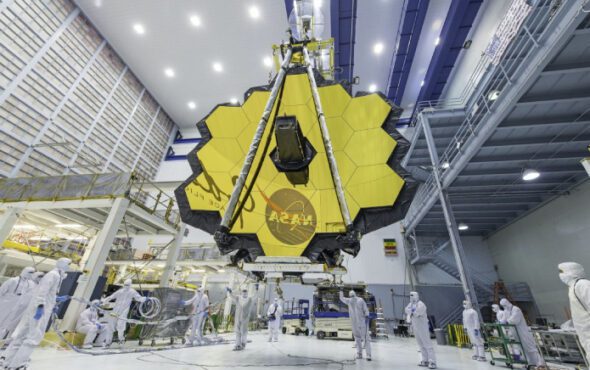
NASA has doubled down on not renaming its James Webb Space Telescope following an investigation into its namesake.
Back in December, the US government agency launched the device – which has been described as the most powerful and largest telescope ever created.
However before its official launch, 1,200 scientists signed a petition calling for NASA to rename the device after unsettling evidence claimed that Webb took part in the Lavender Scare – a “purge” of LGBTQ+ government employees between the 1950s and 1960s.
According to a report from Scientific American, during Webb’s time as NASA’s undersecretary, he drafted an array of memos that discussed “the problem of homosexuals and sex perverts.”
Shortly after the complaints were made, the space organisation launched an investigation into “Webb’s role in the government.”
After a tightlipped internal review in September 2021, NASA administrator Bill Nelson announced that the telescope would not be renamed – resulting in backlash from astronomers.
On 18 November, the government agency doubled down on its stance by making the “extensive investigation” public – which NASA’s chief historian Brian Odom led.
“Based on available evidence, the agency does not plan to change the name of the James Webb Space Telescope. However, the report illuminates that this period in federal policy – and in American history more broadly – was a dark chapter that does not reflect the agency’s values today,” the agency said in a statement.
NEW: @RocketToLulu @niais @iamstarnord and I respond to the NASA #RenameJWST report.
“Webb has at best a complicated legacy, including his participation in the promotion of psychological warfare. His activities did not earn him a $10 billion monument.”https://t.co/Pz86UMMKT3
— Chanda Prescod-Weinstein (@IBJIYONGI) November 18, 2022
According to the report, Odom and his colleagues examined “two instances in which Webb enters this historical context” – which included a June 22, 1950 meeting with President Truman and a June 28, 1950 meeting with Senator Hoey, Charlie Murphy (Truman White House Counsel), and Stephen J. Spingarn (Administrative Assistant to Truman).
However after reviewing over 50,000 documents, the historian revealed that there was no clear indication of Webb having any direct involvement in the “Lavender Scare.”
He also added that Webb was mainly concerned with understanding and implementing the administration’s policies and going to the moon.
“In conclusion, to date, no available evidence directly links Webb to any actions or follow-up related to the firing of individuals for their sexual orientation,” Odom explained.
He went on to say that even though the investigation’s results could not pinpoint Webb’s alleged role, the report was a reminder of the “painful chapter” in American history.
“We must make great efforts to learn from the experience to guarantee that the core values of diversity, equity, accessibly and inclusion are advanced, not only at NASA but across the federal government,” he added.
Shortly after the investigation was made public, the four astronomers who wrote the aforementioned Scientific American article released a statement condemning NASA’s decision.
“NASA’s statement relies on a practice of selective historical reading: where there is not a piece of paper that explicitly says ‘James Webb knew about this,’ they assume it means he did not,” they told NPR.
You can read NASA’s full investigative report here.



